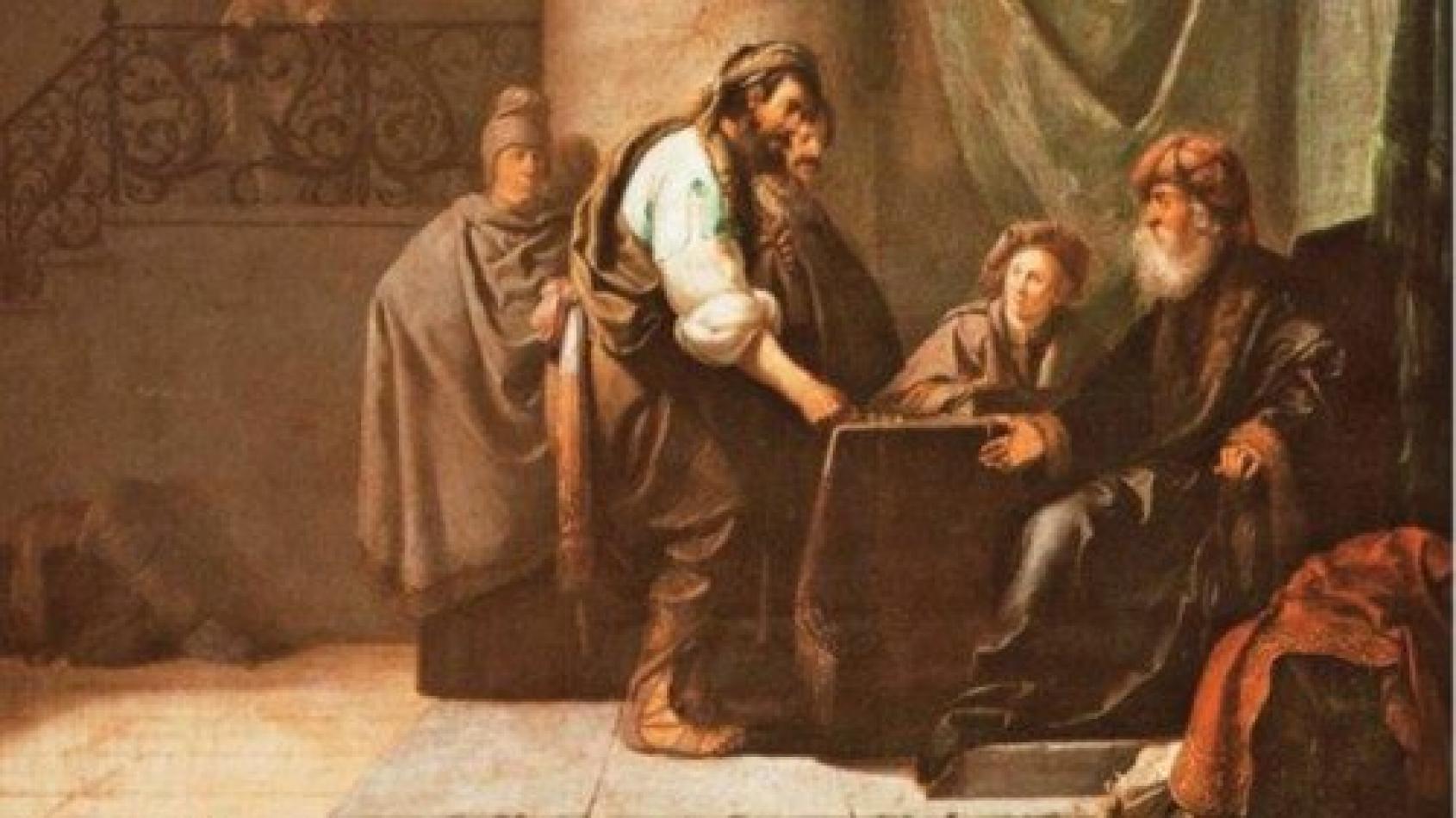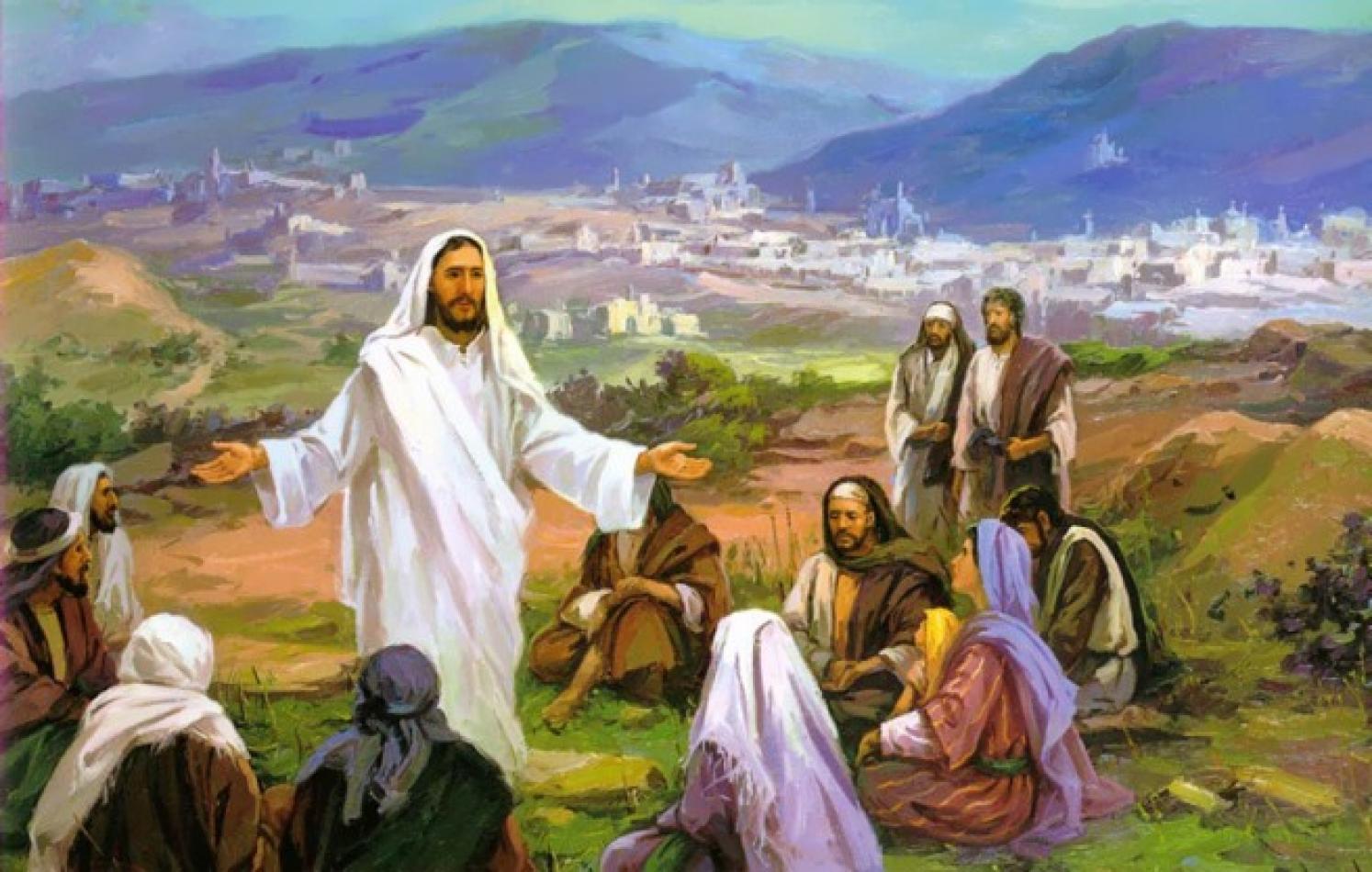Daniel Comboni
Comboni Missionaries
Institutional area
Other links
Newsletter
The hardness of the master toward the third servant seems excessive. He could — in our opinion — show himself more understanding because his employee, in addition to feeling intimidated, perhaps also had the impression of being underestimated. It is in this context that, in the early centuries of the Church, someone has touched up the parable and has concluded as follows: the third servant was not dishonest, he was only afraid, so the master only rebuked him gently. There was also a fourth servant to whom some talents were given. He gave himself to the good life; he squandered it all with harlots and flute players. The master put him in jail. But everyone was treated with mercy. (...)
GOSPEL REFLECTION
Matthew 25:14-30
The hardness of the master toward the third servant seems excessive. He could — in our opinion — show himself more understanding because his employee, in addition to feeling intimidated, perhaps also had the impression of being underestimated. It is in this context that, in the early centuries of the Church, someone has touched up the parable and has concluded as follows: the third servant was not dishonest, he was only afraid, so the master only rebuked him gently. There was also a fourth servant to whom some talents were given. He gave himself to the good life; he squandered it all with harlots and flute players. The master put him in jail. But everyone was treated with mercy.
The one who has changed the story in this way did not understand that Jesus did not intend to give a moral lesson on honesty and how to invest the money, but rather on the commitment in putting to good use the treasures that belong to everyone. As for the alleged poor esteem of the master for the third servant, this should be excluded: a talent was, at that time, a sum of all respect and corresponded to the salary of about twenty years of work by a worker.
Let’s immediately clarify the meaning of the talents. The idea has made its way which is difficult to eradicate that the talents indicate the qualities that every person has received from God. These are qualities that should not be hidden, but developed and put into operation. This interpretation does not agree with what is said in verse 15 where the talents are delivered “to each according to his abilities.” Talents and qualities of the individual, therefore, are not the same thing.
We come to the characters. They are introduced in the first part of the parable (vv. 14-15). The protagonist is a rich oriental person who has to leave for a long journey. He entrusts his possessions to the most trusted servants. He knows their abilities, attitudes, competences, and according to these, he establishes how much to assign to each. This gentleman is clearly Christ who, before leaving the world, handed over all his goods to his disciples.
The master gives no indication on how to manage the talents, giving a sign of full confidence in the intelligence, insight, prudence of his servants and respect for their freedom.
We define what these goods are. This is what Jesus has given to his Church: the Gospel, the message of salvation intended to transform the world and create a new humanity; his Spirit “who renews the face of the earth” (Ps 104:30), even himself in the sacraments; and then his power to heal, to comfort, to forgive, and to reconcile with God.
The three servants are members of the Christian community. To each of them is given an assignment to do so that the wealth of the Lord may be put to good use. According to one’s own charism (1 Cor 12:28-30), everyone is called to produce love. Love is, in fact, the gain, the fruit that the Lord wants.
The second part of the parable (vv. 16-18) describes the different behavior of the servants, two are enterprising, dynamic, hardworking, while the third is fearful and insecure.
The time that all three have at their disposal is when the master is away: from Easter until the coming of Christ at the end of the world’s history. It is the time in which the Church organizes her life, grows, develops, and engages in favor of people awaiting the return of the Lord.
Matthew wants to encourage his community to a test. He invited them to ask themselves first if they are aware of the treasure they have in hand, to check if all the “talents” are used for the best or if any gift is hidden underground, if there are neglected aspects of the ecclesial life or if any ministry languishes.
In the third part of the parable (vv. 19-30), we witness the rendering of account. The scene was initially quiet and serene, then it becomes dark and—as so often happens in the Gospel of Matthew—it culminates in a dramatic way. Let’s see it.
The first two servants present themselves. With justifiable pride, they say to the master of having doubled their possessions. In the parallel passage of Luke’s Gospel, the two servants seem to want to recognize that a very surprising result must be attributed to the goodness of the capital more than their own efforts. “Sir, your pound of silver—they say—has earned more …” (Lk 19:16-18). In Matthew, however, the ability and the personal merit are highlighted: “I have gained …” said each of the two servants (vv. 20-22). The reward they receive is “the joy of their Lord,” the happiness that comes from being in tune with God and his plan.
Then the third servant who, despite not being the main actor, appears to be the principal character of the parable. “I know—he says to his master—that you are a hard man. You reap what you have not sown and gather what you have not scattered. I was afraid, so I hid your money in the ground. Here, take what is yours.”
The image this servant has of the master, while terrifying, is not corrected, but in fact affirmed. Matthew uses it to indicate how much the good of the person is in Christ’s heart, how much he presses that the Kingdom of God be established in the world. The “wrath of God” is a biblical expression which emphasizes his irrepressible love.
The central message of the parable is in the master’s rebuke of the slothful servant: the only unacceptable attitude is the disengagement; it is the fear of risk. Even to the first two, perhaps not all the economic transactions went well. However, he is condemned because he let himself be blocked by fear.
There were neglectful and diligent disciples in Matthew’s time, and they continue to be in our communities. There are dynamic and enterprising Christians who are committed to give a new face to the catechesis, liturgy and pastoral work, who are passionately committed to the study of God’s word in order to grasp its true and deep meaning, who are generous and active and that, sometimes for an excess of zeal, they make mistakes and do not always guess the choices to make. Other Christians are rather lazy and afraid of everything. They limit themselves to repeating monotonously and tediously the same gestures, the same phrases. They do not study and are annoyed if someone proposes new interpretations. They do not even raise the question whether certain changes are desired by the Spirit. They feel safe only within what has always been said and done in the past. Any leap toward the future or every human achievement scares them. They do not resonate with the great values of freedom and community life. They are afraid.
It is unbelievable but true. One can be paralyzed by the fear of Christ. A certain spirituality in the past urged Christians to act but especially recommended not to commit mortal sins to remain in the grace of God, being faithful to the commandments and precepts. Transgressors are threatened with terrible punishments. This spirituality created the third type of servants, that is, the Christians who, in order to avoid sins, always played it safe. They could not risk it, because those who try to commit themselves, inevitably expose themselves to the risk of being wrong.
Without realizing it, those who preach this fear are causing the lack of love, sterile goodness, and spiritual lethargy in the community.
The “talent” of God’s word, for example, bears fruit only when one grasps its true meaning, when it is translated into a language understandable to today’s person, and when it is applied to life and the concrete situations of the community; otherwise it remains a dead capital producing no change; it does not shake the conscience, nor provoke or scare anyone.
The punishment for making the talents of the Lord unproductive is the exclusion from his joy. It is not the condemnation to hell, but it is the fact of not belonging today to the kingdom of God.
What should one, who does not commit oneself, who does not dare to put to use the things of the Lord, do? He should not continue to occupy unnecessarily a position of responsibility but must give his ministry to the bank, the community, so that he may give and entrust this service to another who is willing to do it with commitment, because the community requires that all ministries are well fulfilled.
The conclusion of the parable: “For to all those who have, more will be given, and they will have an abundance; but from those who are unproductive, even what they have will be taken from them” is a popular proverb that reflects an easily verifiable fact: wealth tends to accumulate and the rich becomes richer. Invoked in this parable, this saying meant to signify that, with the riches of God’s kingdom, the same thing happens: the community that is generous and attentive to the signs of the times progress and is gaining greater vitality, while those who prefer to withdraw into themselves grow old, lapse and no one will be surprised to see them disappear one day.
READ: The parable of the talents reveals how a right attitude of the heart gets rewarded by the Lord. Those with the soundness of soul do not need to fear the advent of the Day of the Lord and his judgment.
PRAY: Pray for the right attitude of the heart that makes us pleasing to the Lord.
ACT: List out three talents God has given you. Plan out how well you can double them at the service of God and his people.
REFLECT: One might wonder about the justice of unequal distribution of the talent among the servants. However, it is not what one receives that counts, but what one does with what he/she has received. The Master’s delight and offer of reward are the same towards his servants who doubled their talents. God looks not at the quantity of our offerings, but at their quality as well as the attitude with which we offer.
Fernando Armellini
Italian missionary and biblical scholar
https://sundaycommentaries.wordpress.com




